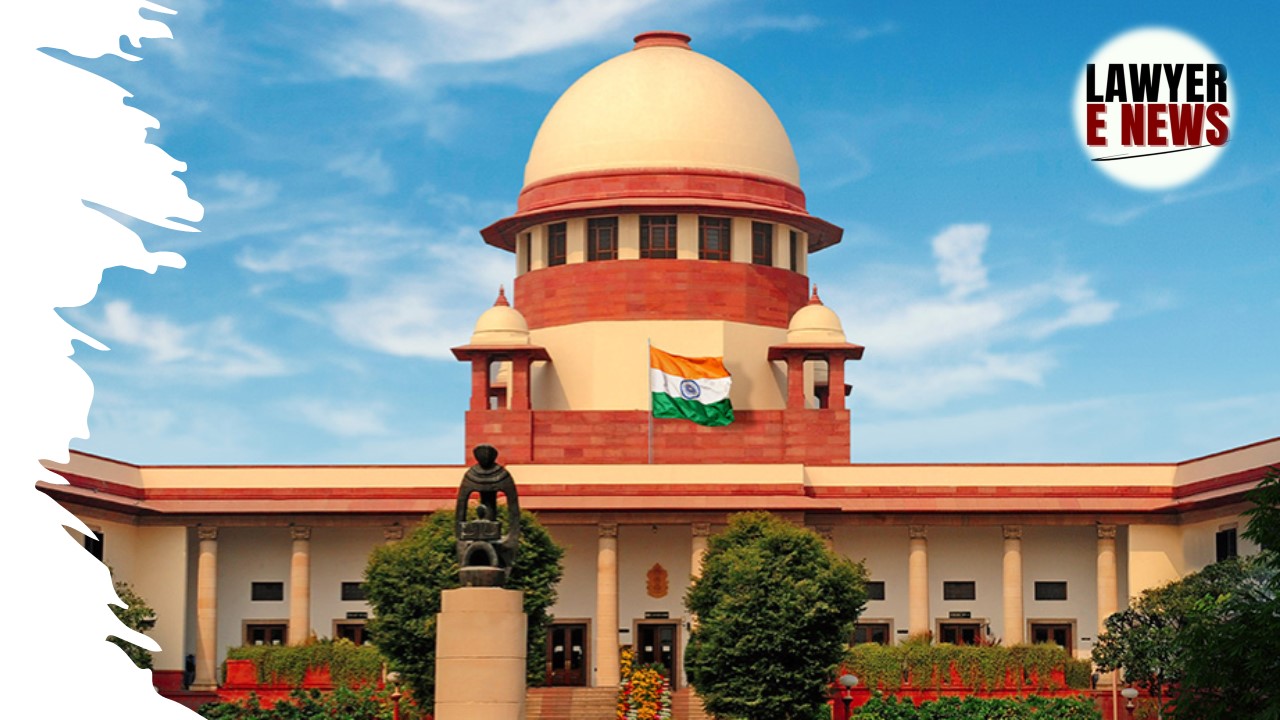-
by Admin
15 February 2026 2:16 AM



Public Location Recovery Weakens Case - Supreme Court of India acquitted Vishwajeet Kerba Masalkar, who had been sentenced to death for the 2012 murders of his mother, wife, and daughter in Pune. The Court held that the recovery of a hammer from a public canal, allegedly used in the murders, could not be considered reliable evidence. The acquittal overturns both the conviction and death sentence upheld by the Bombay High Court and the trial court.
The crux of the prosecution's case rested on the recovery of the blood-stained hammer from a canal, which the police claimed was disclosed by Masalkar during his arrest. However, the Supreme Court, led by Justice B.R. Gavai, cast significant doubt on this evidence, emphasizing that the hammer was recovered from an open, publicly accessible location, raising the possibility of tampering or planting of evidence.
"The place where the accused had taken the police was already known to the investigating officers," noted the Court, suggesting that the recovery may have been staged and could not be trusted as conclusive proof of Masalkar's guilt. The Court further remarked on the improbability that a hammer submerged in water for three days could still retain bloodstains, undermining the forensic value of the evidence.
On October 4, 2012, Masalkar initially reported a robbery at his house in Pune’s Champaratna Society, where his mother, Shobha Masalkar, his wife, Archana Masalkar, and his two-year-old daughter, Kimaya, were found brutally murdered. The post-mortem revealed that his wife and mother died from severe head injuries, while his daughter was smothered to death. The investigation quickly turned towards Masalkar as a suspect, with police alleging that he had committed the murders to pursue an extramarital affair with Gauri Londhe.
The prosecution argued that Masalkar killed his family in cold blood, using a hammer to attack his mother and wife, and smothered his daughter. It was claimed that Masalkar had disclosed the location of the murder weapon—the hammer—which was later recovered from a canal, wrapped in a blue bag. The trial court found him guilty of murder under Section 302 of the Indian Penal Code (IPC) and sentenced him to death. This conviction was upheld by the Bombay High Court on appeal.
The case hinged on circumstantial evidence, with the recovery of the hammer, the appellant’s blood-stained clothes, and CCTV footage showing Masalkar leaving his house shortly after the murders forming the backbone of the prosecution’s case. Additionally, Madhusudhan Kulkarni (PW-12), a neighbor who survived an attack on the same day, testified that he saw Masalkar leaving the crime scene holding a hammer.
However, the Supreme Court questioned the strength of this evidence. Justice Gavai pointed out that Kulkarni’s testimony was recorded six days after the incident, raising doubts about its reliability. Moreover, while Kulkarni testified that Masalkar held a hammer when he attacked him, the court noted inconsistencies in his statement and the circumstances under which it was recorded.
"Suspicion Cannot Replace Proof"
The Supreme Court carefully examined the circumstances surrounding the recovery of the hammer. The judges highlighted several troubling factors, particularly that the hammer was found in a public place, making it accessible to anyone. The recovery was conducted with the help of swimmers, and two people were already searching the canal when the police arrived, suggesting prior knowledge of the hammer’s location.
The Court observed, “It is improbable that a hammer soaked in water for three days would still retain blood-stains,” casting further doubt on the prosecution’s evidence. The apex court also pointed out that the clothes recovered from Masalkar were found in a place open to public access, making it difficult to establish a direct link between the evidence and the accused without doubt.
Justice Gavai, relying on well-established principles of criminal law, emphasized that "suspicion, however strong, cannot take the place of proof beyond reasonable doubt." The Court cited the landmark judgment in Sharad Birdhichand Sarda v. State of Maharashtra, which underscores that a conviction based on circumstantial evidence must establish a complete chain, leaving no room for any other explanation. In Masalkar’s case, the Court found that the evidence was too weak to exclude every other hypothesis.
Delayed Testimony: The Court criticized the delay in recording the testimony of the key witness, Madhusudhan Kulkarni, noting that his statement was recorded six days after the incident despite being conscious and capable of speaking earlier. This delay undermined the credibility of the testimony.
Inconsistencies in Recovery: The recovery of the hammer from a public canal was deemed unreliable, as the location was accessible to anyone, and the involvement of divers suggested that the police might have known the hammer's location beforehand.
Tampering of Evidence: The Court expressed doubts about the handling of the blood-stained clothes and jewelry recovered from the crime scene, indicating that the open location where they were found made it impossible to rule out tampering.
Based on the significant doubts surrounding the circumstantial evidence, the Supreme Court overturned the conviction and death sentence, ordering Masalkar’s release. The Court’s decision highlights the critical importance of credible, uncontaminated evidence, particularly in capital punishment cases. The ruling serves as a reminder that courts must exercise extreme caution when relying on circumstantial evidence, ensuring that every possible doubt is eliminated before arriving at a guilty verdict.
Date of Judgment: October 17, 2024
Vishwajeet Kerba Masalkar vs. State of Maharashtra
